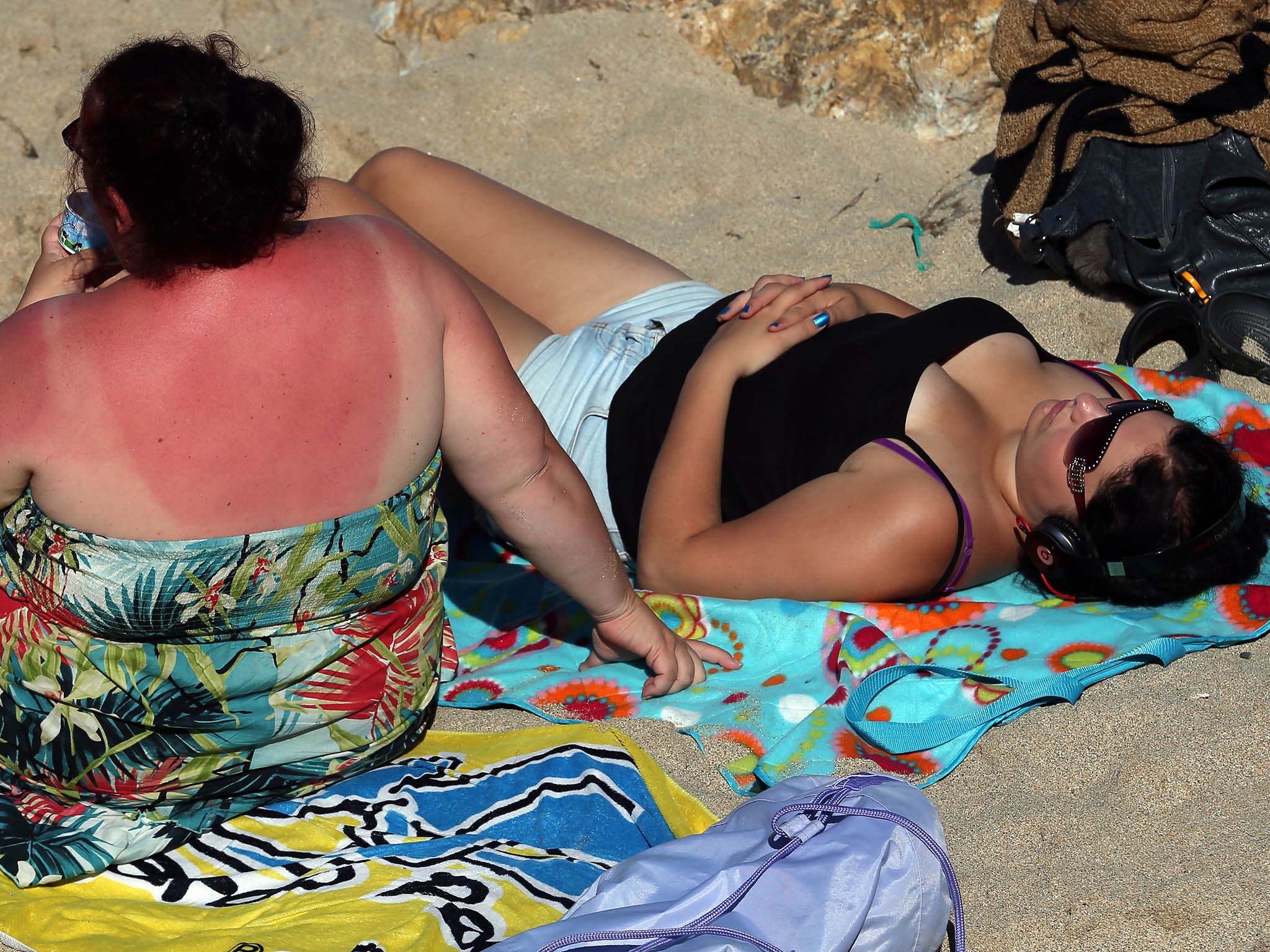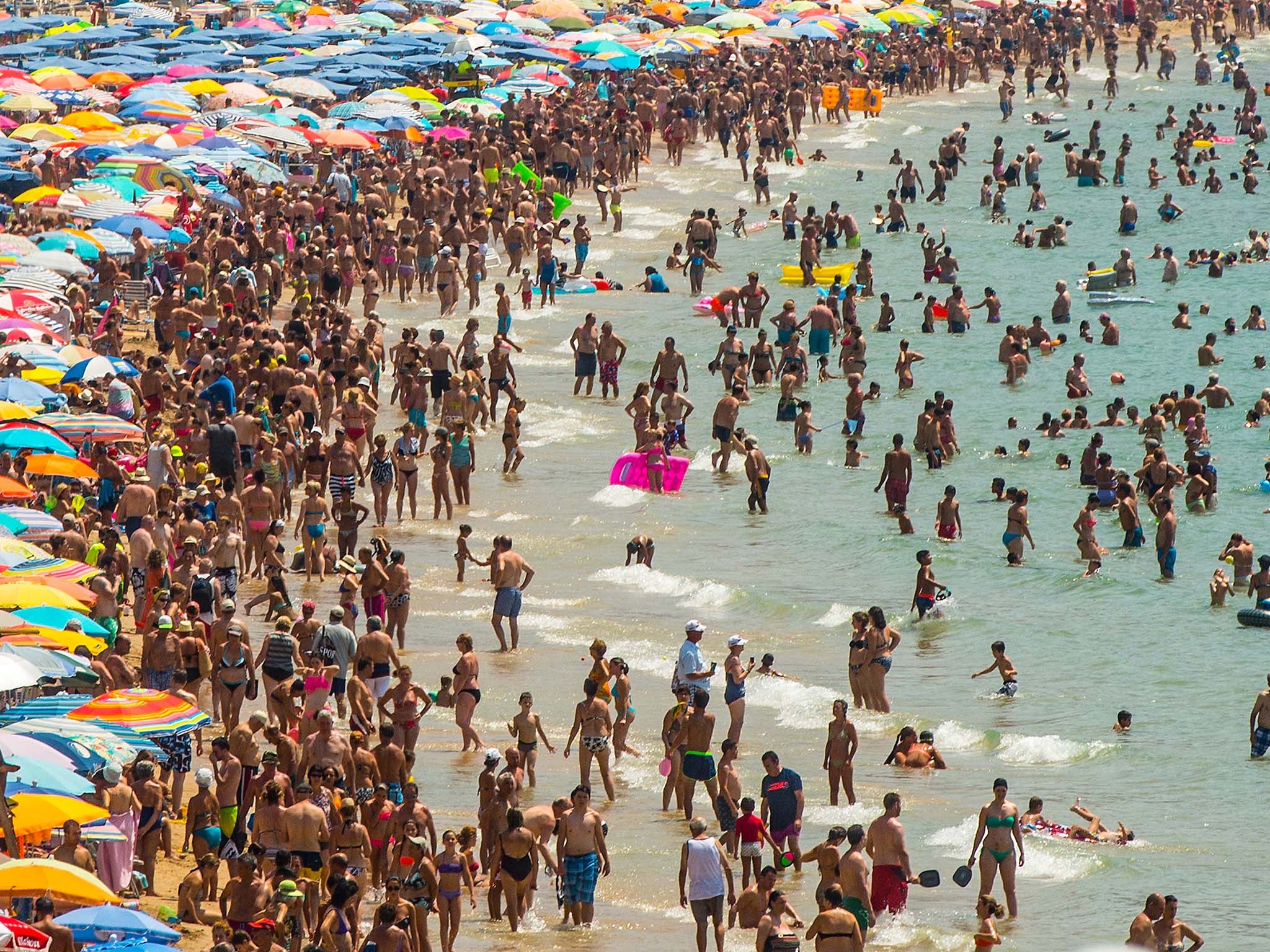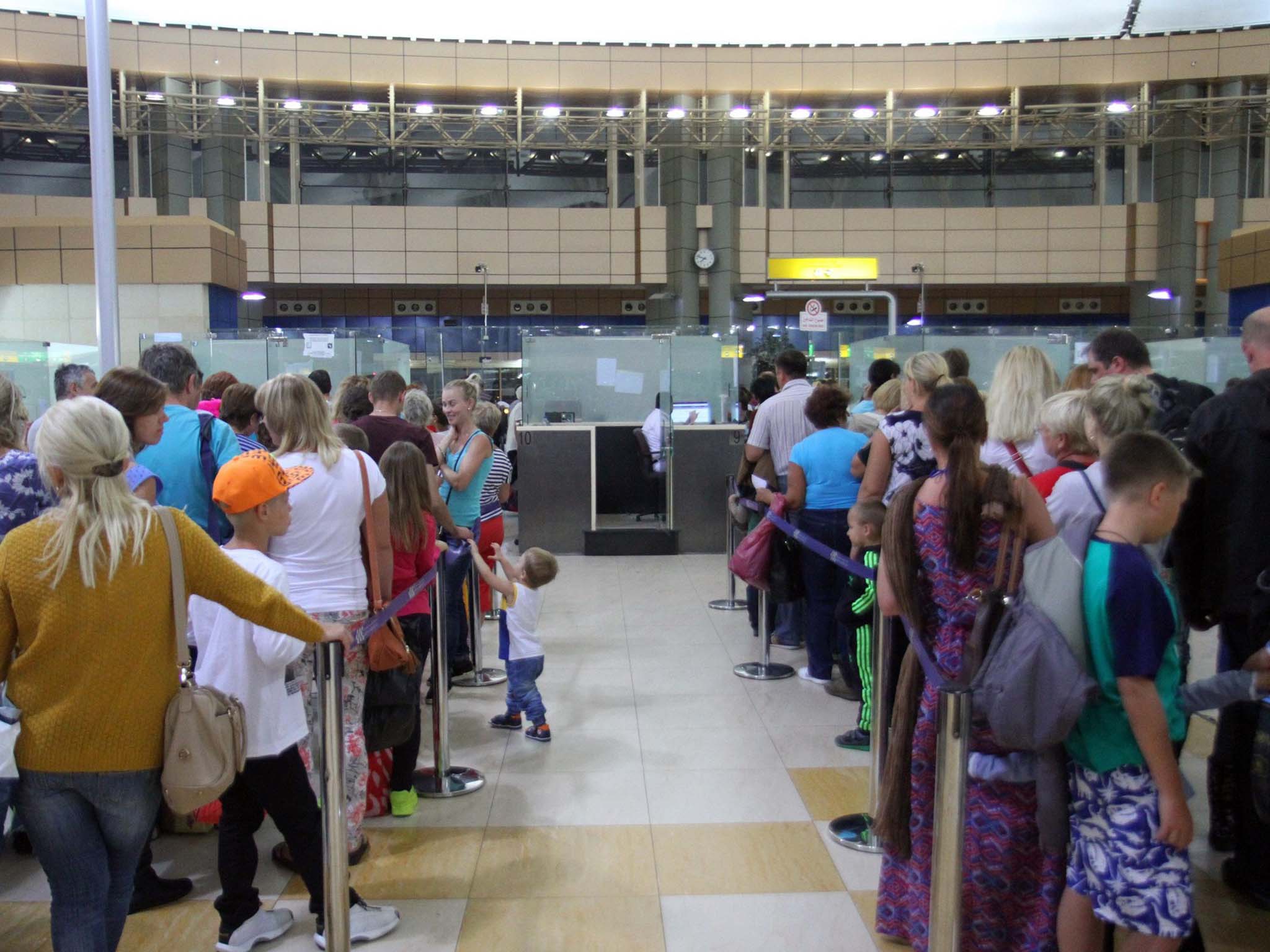Brits a’fraud: Cashing in on fake travel insurance claims
Unscrupulous claims companies have stirred an epidemic of ‘food poisoning’ insurance scams by British – and it is always British – holidaymakers. The problem is so bad that some European hotels may now ban UK visitors from all-inclusive deals

Your support helps us to tell the story
From reproductive rights to climate change to Big Tech, The Independent is on the ground when the story is developing. Whether it's investigating the financials of Elon Musk's pro-Trump PAC or producing our latest documentary, 'The A Word', which shines a light on the American women fighting for reproductive rights, we know how important it is to parse out the facts from the messaging.
At such a critical moment in US history, we need reporters on the ground. Your donation allows us to keep sending journalists to speak to both sides of the story.
The Independent is trusted by Americans across the entire political spectrum. And unlike many other quality news outlets, we choose not to lock Americans out of our reporting and analysis with paywalls. We believe quality journalism should be available to everyone, paid for by those who can afford it.
Your support makes all the difference.Unfamiliar food, excessive booze and too many hours spent cooking in the sun means an upset stomach can be a summer holiday inevitability, but a rise in fraudulent travel insurance sickness claims means Brits now risk being banned from all-inclusive breaks altogether.
Travel bosses have been left embarrassed by the “British-only” trend which has seen a 500 per cent increase in the number of compensation claims for holiday sickness since 2013 – a rise attributed to the growth of questionable claims management companies and “easy win” loopholes in legislation.
According to travel agents’ association ABTA, which has launched the Stop Sickness Scams campaign, claims management companies are cold-calling holidaymakers on their return home and even approaching tourists in resorts, encouraging them to make illness claims against their tour operator.
Research by law firm BLM shows that 5 per cent of all-inclusive holidaymakers have been targeted while on holiday, with a further 5 per cent receiving an unsolicited phone call upon their return home.
And while most insurance companies require medical evidence of illness, unscrupulous claims companies have less-exacting standards. “With the claims going into third party claims management agencies who are actively seeking these types of claims, there have been reports of simple packets of medication being supplied as ‘evidence’ of the incident,” says Charlotte Lee-Field, head of claims at TIFGroup.
Sarah Dawson was on holiday with her family in Costa Brava in May when she was approached by a “respectable-looking” man who tried to convince her to make a claim. “He said all we needed was a chemist’s receipt for diarrhoea medicine, and that we wouldn’t even have to go through our own holiday insurance provider. It sounded really straightforward – I’m not surprised people are going for it.”

The trend has been likened to the spate of “easy money” whiplash claims seen in recent years, before the Ministry of Justice put a cap on pay outs. “Whiplash fees are now capped at £180 but prior to that claims compensation companies could charge anything with typical amounts being around £750,” says Phil Carr, director of sales at ROCK Insurance. “With the obvious decrease in fees we’re now seeing a new unregulated route for these organisations and overseas sickness claims do not have the same amount of capping. You only have to search on the web for “sickness claims” and you are greeted by dozens of organisations wanting your no win, no fee business.”
With sickness payouts ranging between £500 and £2,000, and often more – certainly enough to cover the cost of next year’s holiday – it’s easy to see why holidaymakers are enticed by this seemingly victimless, risk-free crime. But industry heads are working to ensure those making fraudulent claims are caught and held accountable – and when they are, the consequences can be serious.
Holidaymakers found guilty can expect a criminal record and a fine in the UK, as well as severe punishments from the country in question. For example, a Greek hotel is currently pursuing a counter-claim for £170,000 against a British couple where they have evidence to prove the couple made a fraudulent claim, while in Spain, anyone found guilty could face up to three years in jail with no opportunity for a suspended sentence.

And then there’s the wider impact, for those that will struggle to make legitimate claims in the face of tighter bureaucratic hurdles (“their claims will be treated by tour operators with greater scepticism and more scrutiny,” says Ian Brown from law firm Trowers & Hamlins), and for British holidaymakers in general. “Hoteliers are likely to charge British tour operators more for rooms, which will undoubtedly need to be passed down to the consumer,” says Carr.
“The Insurance industry always has to accommodate the cost of claims and increases in fraudulent claims will ultimately have to be spread across all customers to keep pricing competitive. Equally as prices of holidaying aboard increase, alongside the impact of Brexit and the rising price of insurance, we will increasingly see more and more people risking travelling uninsured in order to cut additional costs from their trip.”
According to Travel Supermarket, nearly half of all British travellers (46 per cent) have gone away without insurance at some point – a figure that could well rise if policies become more expensive. Would you risk travelling without it? A dodgy stomach is one thing, but many holidaymakers have found themselves in much more unusual scenarios. Here are 10 of the most baffling travel claims insurers have heard.
1. A woman was hospitalised in the US with what she thought was an illness, only to give birth to twins prematurely – she hadn’t known she was pregnant.
2. A campervan in Australia had such a bad case of bedbugs that the hire company advised the customer to set fire to it (with their belongings inside) and make a claim on their travel insurance.
3. A woman injured her pelvis while skiing. Due to her tall stature the village doctor’s X-ray machine wasn’t up to the job so she had to be X-rayed by the local vet.
4. A man made a claim for his contact lenses after losing one while getting a massage with a “happy ending”.
5. An insurance company flew a couple to Italy to find their missing daughter, only to discover that she’d met a man in a nightclub and was spending a few days in bed with him, ignoring her phone.
6. A man tried to claim back the cost of his safari because he felt he didn’t see enough wildlife.
7. Two Devonshire holidaymakers tried to claim for damage to their car’s paintwork after it was licked by a cow.
8. A family’s camping holiday in Wales was ruined when a parachutist from a nearby airbase landed on their tent, destroying their tent and everything inside.
9. A man filed a claim for two coconuts, lost on his way home from his travels. The claim was denied not only because it’s forbidden to bring such items back into the country, but because he wanted £1,000 for each of them.
10. A father tried to file a claim for a disastrous haircut his teenage daughter got on holiday in Spain. He said she was so upset it ruined the holiday for the whole family.
Join our commenting forum
Join thought-provoking conversations, follow other Independent readers and see their replies
Comments